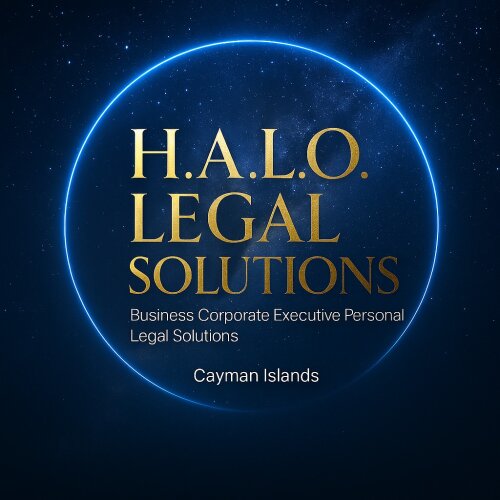Best Sanctions & Export Controls Lawyers in George Town
Share your needs with us, get contacted by law firms.
Free. Takes 2 min.
List of the best lawyers in George Town, Cayman Islands
About Sanctions & Export Controls Law in George Town, Cayman Islands
Sanctions and export controls are legal measures used by governments to regulate trade and restrict dealings with specific countries, individuals, or entities. In George Town, Cayman Islands, these laws play a crucial role in maintaining the jurisdiction's global standing, ensuring compliance with international obligations, and safeguarding the financial and economic integrity of the region. Authorities enforce regulations that prevent the financing of terrorism, prohibit transactions involving sanctioned parties, and restrict the export of certain sensitive goods or technologies. Businesses, financial institutions, and individuals in George Town must be aware of these rules to avoid severe legal and financial consequences.
Why You May Need a Lawyer
Navigating the complex field of sanctions and export controls can be challenging, particularly for those unfamiliar with regulatory requirements. You may need to consult with a specialized lawyer in George Town if you are:
- Unsure about the legality of a proposed transaction related to sanctioned regions or entities
- Facing an investigation or enforcement action by local authorities regarding sanctions compliance
- Running a business that exports goods, technology, or provides financial services internationally
- Handling funds or resources that could potentially fall under sanctions restrictions
- Involved in mergers, acquisitions, or other deals where due diligence on sanctions compliance is required
- Needing advice on implementing or reviewing compliance programs within your organization
- Seeking general counsel on regulatory updates or changes in Cayman's sanctions legislation
A lawyer can help clarify your obligations, provide risk assessments, represent you in legal proceedings, and advise on best practices for maintaining compliance.
Local Laws Overview
The Cayman Islands, as a British Overseas Territory, operates its sanctions regime in alignment with the United Kingdom. This means that sanctions orders issued by the UK Government often extend to the Cayman Islands. Local laws are enforced through the Terrorism Law, the Proliferation Financing (Prohibition) Law, and the various Sanctions Orders made under the local Sanctions and Anti-Money Laundering (Implementation of Overseas Sanctions) Law.
Key aspects of these laws include:
- Prohibition of transactions with individuals, entities, or countries designated under sanctions orders
- Mandatory reporting obligations for financial service providers and relevant businesses regarding suspicious activities or suspected sanctions breaches
- Requirements to freeze assets and cease dealings with sanctioned parties
- Export controls on specific goods, technology, and services deemed dual-use (civil and military), as well as those with potential for misuse
- Criminal penalties for individuals or companies found to be non-compliant, including fines and imprisonment
These laws are robust and subject to regular updates to remain current with international standards set by organizations such as the United Nations or the European Union.
Frequently Asked Questions
What are sanctions and export controls?
Sanctions are restrictions or prohibitions imposed on dealings with specific countries, organizations, or individuals, primarily for foreign policy or national security reasons. Export controls regulate the transfer of goods, technology, or services to prevent misuse or the proliferation of weapons and terrorism financing.
Who enforces sanctions and export controls in the Cayman Islands?
Enforcement is carried out by the Cayman Islands Monetary Authority (CIMA), the Financial Reporting Authority (FRA), and other relevant government departments. These agencies ensure compliance with both local and international regulations.
What are the penalties for breaching sanctions laws?
Penalties can include significant fines, imprisonment, asset seizure, and reputational damage. The severity depends on the nature and extent of the breach.
How do I know if a person or organization is subject to sanctions?
Sanctions lists are published by the UK Government and are applicable in the Cayman Islands. Local authorities also issue guidance and updates. Checking these lists before transacting is mandatory for compliance.
Are there reporting obligations for suspected sanctions breaches?
Yes, there are strict obligations for financial service providers and certain businesses to promptly report any suspicious activity or suspected breach to the relevant government authorities.
Can a lawyer help me if I am accused of a breach?
Absolutely. A lawyer can provide representation, advise on your best course of action, and help manage communications with authorities during an investigation or enforcement process.
Does the Cayman Islands have local sanctions lists or just applies UK sanctions?
The Cayman Islands primarily implements sanctions made by the UK Government, but local authorities enforce these through domestic legislation, ensuring their applicability within the territory.
Do export controls apply to digital products or only physical goods?
Export controls can apply to both physical goods and digital products, such as software, data, and technology, especially if they are considered dual-use or sensitive under local or international law.
What steps can my business take to ensure compliance?
Businesses should develop and implement robust internal compliance programs, provide staff training, regularly review relevant sanctions lists, and consult legal experts when uncertainty arises.
Are there exemptions or licenses to engage in otherwise restricted transactions?
In certain cases, exemptions or licenses can be obtained from the relevant authorities to permit specific transactions, but these are strictly regulated and require formal application and justification.
Additional Resources
Some helpful resources and organizations in the Cayman Islands for sanctions and export controls include:
- Cayman Islands Monetary Authority (CIMA) - Provides guidance on financial sanctions compliance
- Financial Reporting Authority (FRA) - Receives reports of suspicious activities and sanctions breaches
- Cayman Islands Government General Registry - Issues public notices on updated sanctions and export control measures
- Chamber of Commerce - Offers educational resources and support for businesses
- Qualified law firms and legal advisors specializing in sanctions law
Consulting these bodies or seeking information on their services can provide additional clarification on your obligations.
Next Steps
If you believe you may be affected by sanctions and export controls regulations in George Town or you require guidance on a specific matter, consider the following steps:
- Identify the nature of your concern, such as a proposed transaction or a compliance issue
- Gather relevant documentation and information for assessment
- Contact a qualified lawyer in the Cayman Islands with expertise in sanctions and export controls law
- Discuss your situation in detail and request tailored legal advice
- Implement any recommended compliance measures and maintain ongoing consultation with your legal advisor
Early legal intervention can help avoid serious penalties and ensure your activities in George Town, Cayman Islands, remain fully compliant with all applicable sanctions and export control laws.
Lawzana helps you find the best lawyers and law firms in George Town through a curated and pre-screened list of qualified legal professionals. Our platform offers rankings and detailed profiles of attorneys and law firms, allowing you to compare based on practice areas, including Sanctions & Export Controls, experience, and client feedback.
Each profile includes a description of the firm's areas of practice, client reviews, team members and partners, year of establishment, spoken languages, office locations, contact information, social media presence, and any published articles or resources. Most firms on our platform speak English and are experienced in both local and international legal matters.
Get a quote from top-rated law firms in George Town, Cayman Islands — quickly, securely, and without unnecessary hassle.
Disclaimer:
The information provided on this page is for general informational purposes only and does not constitute legal advice. While we strive to ensure the accuracy and relevance of the content, legal information may change over time, and interpretations of the law can vary. You should always consult with a qualified legal professional for advice specific to your situation.
We disclaim all liability for actions taken or not taken based on the content of this page. If you believe any information is incorrect or outdated, please contact us, and we will review and update it where appropriate.
















